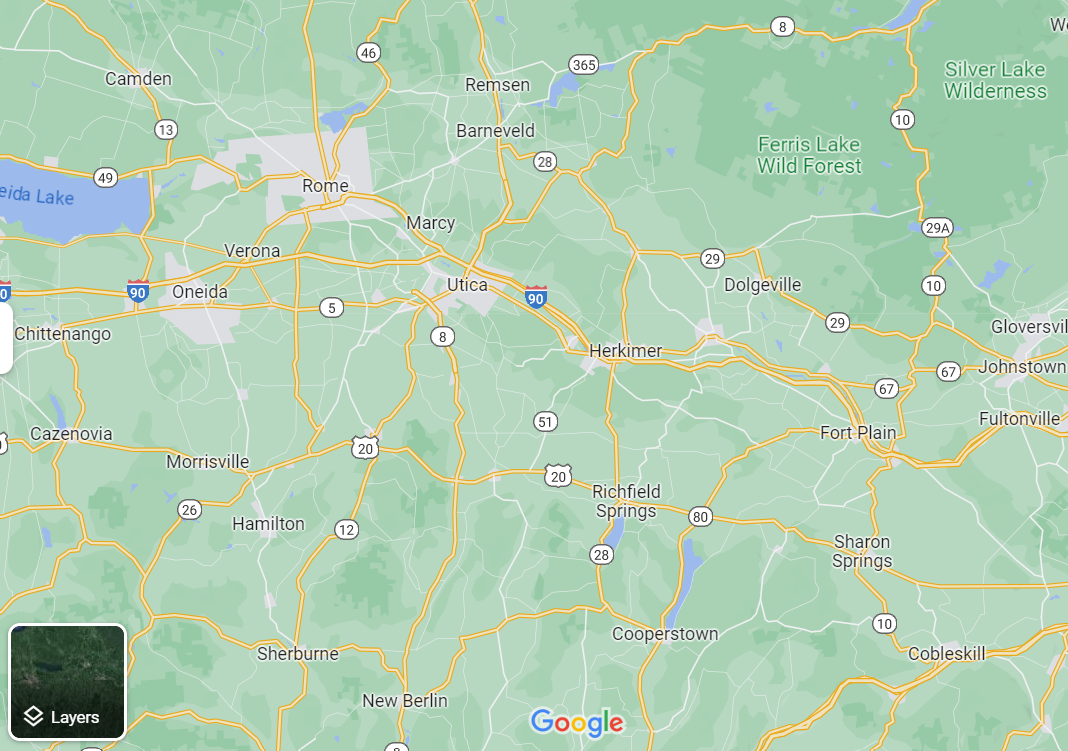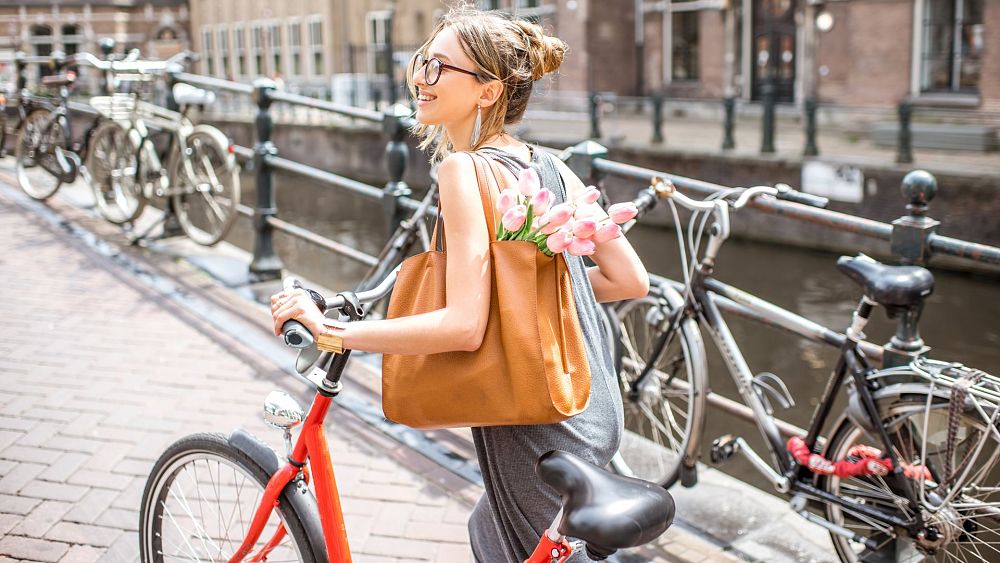- cross-posted to:
- [email protected]
- cross-posted to:
- [email protected]
As a Dutchie, I can only agree. I do have to say the road infrastructure in a lot of countries will have to change too to make this feasible… I have been to Edinburgh, Scotland last week and it feels completely suicidal to ride a bike there, barely any bike lanes and a very big dislike towards cyclists.
If anyone wants to know more about how we do roads in the Netherlands, I totally recommend Not Just Bikes
I do question how this statement of carbon emissions reduction holds up with the large change towards electric bikes, but electric scales better to green energy then cars I guess.
During 40 years, everything has been done for cars. But it’s ridiculous to use a 5 persons transport (car) for only one person. The ecological problem is not only thermal vs electric, it’s also cars versus 2 wheels transport
From my experience, the electricity consumption of e-bikes is low. We have a Babboe cargo bike and we drive 5km every day. I measure the electricity consumption of the charger, and it comes down to 0.5-1kWh per month. I assume regular e-bikes have an even lower consumption.
A UK study showed that carbon emissions for ebike usage was less than human powered cycling, because UK people eat so much meat.
Don’t put the burden on people. Cities worldwide are hostile to cyclists and even pedestrians.
It’s a chicken and egg problem, unfortunately. Cities won’t improve conditions for cyclists if they only see car traffic and people will avoid cycling under bad conditions.
You know what, you’re right.
When are these idiots (journalists/editors) going to learn that messaging matters? 690 million tonnes? Yeah, sounds like a lot. No context for that number in the headline which is all most people read.
Perhaps instead of listingn only statistics and pretending that laypeople care, help people see what that would mean for them personally. Get them invested in the idea. Help plant the seeds and allow them to come to the conclusion that things should change. It’s like someone saying the government spent a billion dollars on something. Sure, that’s a lot of money, but the vast majority of people have no real concept of what a billion of something even is.
It’s a damn shame that the us isn’t more bike friendly. I would kill to have a public transit system that didn’t suck, but unfortunately,l unless there is a massive change, I don’t see car usage going anywhere.
Don’t worry, when gas becomes $100/gal in the next decade or two the US will become really bicycle friendly.
Cycling is cool but that’s small-fry compared to if we all went vegan (or even just vegetarian)…
Vegan (or even just vegetarian) is cool, but that’s small-fry compared to if we just stopped having freaking kids.
Well… I mean I’m not having kids either, but someone has to to continue the species, nobody needs to eat meat.
someone has to to continue the species
Why?
“Willful extinction” is not a productive way to end climate change.
You won’t convince people, so it’s DOA, but it’s also philosophically weak in the face of alternative views. Alternatives which also theoretically have humans in them and don’t obliterate the environment exist, meaning you are on the back foot here to justify an anthropocentric philosophy.
“Why do you think people should exist?” Can be an interesting discussion, but as an argument it’s not a great one.
You won’t convince people
I don’t have to. Birth rates in the developed world are plummeting.
And unless I’m mistaken, you are the one trying to convince people right now.
Birth rates are plummeting to maintain what will probably be around 13 billion. That’s wildly distinct from willful extinction.
I… What? You made a post saying people should do x, I responded. Yeah we’re both trying to convince people of a thing, I’m not sure I see how that is actually relevant.
“[S]omeone has to to continue the species” —you, not me
You won’t convince people, so it’s DOA
That pretty much sums up any approach by humans to do something about what’s happening to the planet. Anything anyone throws out is realistically DOA.
There’s nothing inherently bad about eating meat. We’ve been doing it for 100s of thousands of years. It’s that there are too many freaking people. I judge people way more when I see them with offspring, then I do their dietary consumption.
I’m doing my part. The life of one person creates so much waste and pollution.
And that is microscopic compared to levying massive fines on businesses that don’t go carbon neutral and passing global laws to protect the amazon and MESS UP any government that toys with it.
While I’m a card carrying bike nut and plant-based eater, I feel we can make more of a difference encouraging people to do things that are less all in.
Work commute too far right now? Maybe start replacing the small car trips with bike trips.
Veganism unthinkable? Maybe try a meatless day or two a week.
Something people can wrap their heads around, and after trying, realise they haven’t died.
And that is nothing compared to corporate emissions and air travel, but the internet LOVES telling you that how you live your life is wrong for moral reasons or due to some panic.
I say this as a chef that’s generally vegan friendly. We gotta stop blaming each other when we’re a drop in the bucket compared to big business. They got you attacking other people so they can do what they want with impunity.
Totally agree with your sentiment, we wasted so much time putting the pressure on the individual when the real culprit was Industry, there is no argument whatsoever there. That being said, the Agriculture Industry (food production in general) does account for a hearty chunk, about 25%, of all worldwide emissions, and that is without doing calculation for “land lost” costs, i.e. the reduction in forests we took by having agricultural industry there instead, and the emissions those forests could have negated.
Food is a serious driver of climate change. Meat, but especially beef, is the worse food in terms of the cost we pay in overall emissions. Moreover, half of ALL agricultural land in use is for pasturing animals. Beef being eliminated as a food product would incredibly help climate change and meet emission goals much faster. This video does a great job at summarizing the problem, is a generally reliable channel for informative mini docs, and provides a huge list of sources you can review there.
deleted by creator
From the article:
Dutch people cycle an average of 2.6 kilometres each per day. If this pattern was replicated worldwide, the study suggests, annual global carbon emissions would drop by 686 million tonnes. This mammoth figure exceeds the entire carbon footprint of most countries, including the UK, Canada, Saudi Arabia and Australia.
I think a lot of people see “cycle like the Dutch” and think it means we must all abandon all other forms of transportation. Instead this article says if every nation’s national average for cycle miles traveled per day was at least 1.62 miles, we could greatly curb our carbon emissions. 1.62 miles is a very achievable goal in my mind. It doesn’t necessarily mean every individual must reach that amount per day (unless I’m misunderstanding), it just means the average overall. Others may go more, others less. Others could forgo it entirely, opting instead for walking, public transit, electric car (if it’s the only option), or a combination of all four. I’m certain that not every single person in the Netherlands rides a bicycle, either. We need people to understand this and push for increased safety and funding for alternative forms of transit, so that people can choose to do so safely. Especially in sprawling countries like Australia, Canada, and the USA.
This would only be possible if the urban places really migrated to this kind of system since it isn’t entirely feasible in certain places of the US.
For instance I grew up in the US South, specifically in farm country. The closest grocery was 30 minutes away by car. School busses took an hour or more from pickup to dropoff. No one in those kinds of communities are going to stop using a car for biking or public transport because it would take way too long to complete tasks. Switching to electric cars is theoretically a good idea, but we don’t currently have enough infrastructure to support it (and these places in the South definitely don’t). Plus, there are places still on coal and gas for energy, so by increasing their energy needs, you are essentially increasing that much more environmental damage. (I am not against electric cars btw, just see the pros and cons.)
On the other hand, where I live now is a suburb of a huge metro that has groceries, schools, and healthcare everywhere. It would be completely possible for us to use only public transport and/or biking because the community is more dense. These are the places that really need the push for more environment-friendly services, which would decrease our destructive tendencies enough for those places who can’t jump on this to catch up.
Totally get that. I grew up in a place much like the one you describe here, in the deep south too, even. My town had a population of ~300, and our commute to school and grocery stores took roughly the same length of time. That said, we did still have a school bus. If we didn’t, we probably would have been home schooled, just due to the commute. Given the large amount of people living in that town over age 70, I can imagine the benefits of say, a bus that took people to the grocery store and back. It would be life changing for some people in that town, and could occur if we allocated funds to improve public transit/alternative transportation nationwide.
But no, I don’t see these communities going all in on bikes, obviously not. Luckily, we aren’t really talking about these communities. At least not primarily. 80% of our population is in cities, and we should be fixing things there, not in rural areas where the changes don’t make sense. A person in this thread mentioned being from a rural town in the Netherlands, and how they had bikes, but still used their car lots of the time. I think we can both agree, no one with any serious political power in the Netherlands is coming to take rural citizen’s cars away. We can instead focus on improving climate costs in other ways in rural areas, like shuttle buses for the elderly, like I mentioned. Or, for example, improving access to local agriculture with CSA’s or farmer’s markets, creating classes teaching people how to grow their own food, replacing appliances that rely on gas and coal with more climate friendly alternatives (possibly through government buy backs to make this feasible for people with low income), and yes, replacing ICE cars with electric cars (an overhyped technology for sure, but one that actually makes sense for this population). The infrastructure isn’t there for electric cars today, but we also didn’t have gas stations on every corner when ICE cars first started selling. That will all come in time, and will come faster if people demand it.
I live in a mid size US city now with bike trails that can take me to the suburbs and back in an hour or less. We have light rail and buses that can do the same. This sort of infrastructure could be improved to be more protected from drivers (in the bike lane sense) so that more are encouraged to ride it. The public transit here could be made more affordable (transit paid by tax instead of upfront fair) so that people use the public transit over cars or even ride sharing. This type of public transit/bike infrastructure could be applied to many many more American cities. Unfortunately, cities like this are the exception, not the rule, for our country. I think that’s a shame.
Tl;dr - I don’t think we disagree. This is overwhelmingly a solution for the cities and suburbs, where most Americans live. There are lots of things we can (and have to) do to fix climate change. Bicycles shouldn’t be a golden hammer, but they are a very underutilized tool that can help fix this problem.
We’re absolutely on the same page!
Completely agree. Right now, I think a lot of people are interested in trying ebikes but the cost for some is too high for something that people aren’t familiar with. The ebike rebates should help, I hope.
I wish we had more bike-friendly infrastructures on France, right now everything is still adapted to a car-centered lifestyle…
It’s never fast enough but we have the LOM law though : https://www.ecologie.gouv.fr/loi-dorientation-des-mobilites
Each time you launch road works.you have the obligation to take into consideration bike lanes.
As a Dutchie in rural France atm, is way too hily here and the nearest supermarket is a fifteen minute drive away. I couldn’t do my shopping by bike like back home even if I tried.
True that, I always forget this factor.
E-bikes, while more expensive, completely flatten hills. They’re also fantastic for carrying cargo, and yes, groceries.
My Hometown here in Germany lost out on about 3 Millions of funding for bike infrastructure in the last decade, because no one in the city government felt responsible to plan any infrastructure in the transportation department.
Whilst I agree with the sentiment, it’s not possible for everyone to use a bike 100% of the time. Infrastructure does help, and I admit my UK city is certainly not very bike friendly, but even if it was it would be nearly impossible as everything is just too far away and/or you can’t transport what you need to on just a bike. We still need cars of some propulsion method or another.
I hear where you’re coming from but this isn’t what the article said. Dutch people use other modes of transportation than bikes. Just not as much. There are use cases where cars are hard to replace but right now, we are using them for way too many things. Public transportation is another alternative to cars that is way to often overlooked.
why “people cannot bike 100% of the time” and but"people cannot drive 100% of the time" is never an issue? There are way more people who cant drive than people who cant ride a bicycle and that didnt stop humanity from making ourselves dependant on cars.
Proper infrastructure and proper public transport which allows bringing bikes solve most problems.
With a cargo bike you can transport most things just fine, for stuff that can’t be transported by bike a shared car or delivery company can be used.
Honestly, a friend told me a wonderful idea, which just makes me more disappointed in our governments lack of any real foresight:
They could’ve put a cycle path/walking path beside the HS2 rail line, would’ve been pretty darn useful for travelling large distances on bike. Even could’ve had camping grounds and analogues to motorway services at points along the route…
Canals are kind of a useful aspect for travelling around the country on bike as you can basically cover most of the country, but they aren’t wide enough/maintained enough to be truly viable.
I’m from the Netherlands and I don’t use a bike 100% of the time either of course. I’ll ride it for any commute under 10 km that doesn’t require me to transport any large or heavy items, though. I’m fortunate enough to have a work place within cycling distance, so I’d estimate I use my bike about 70% of the time I need to go somewhere. Needless to say, this lowers my carbon output quite significantly compared to using a car.
deleted by creator
Left LA in 2018. went from a 10min bikeride (1.25hr workout) to a 3-5hr commute because “promotion”… now I don’t even have a license, i run my 70 seat restaurant via cargo bike just fine (only meats, beer/wine delivery).
went from a 2-3hr drive to the beach (++ parking fees) to 5 min bike, 10 min walk to one of several beaches.
multiple mountain hiking trails within 20 min, bus/train with regular service etc.
We could not be happier in our little slice of socialist hell…
I live in a tropical country… I would love to cycle to work but (i) roads are a living hell and (ii) it’s hot and humid af and i look like I fell into the ocean after a 20-minute ride.
(i) is fixable with good infrastructure, (ii) isn’t :(
Are you in SM by any chance?
Where at? And how much did it cost ya? I’ve been wanting to move to a more bike friendly area but even with $150k down my mortgage would double and I’d lose two paying roommates.
Although the practicality is questionable, I think the takeaway is that we will have to rethink mobility and dense environments with good cycling infrastructure will be the most sustainable ones. Public transportation which is great too, also requires a certain density to be feasible.
The practicality isn’t questionable.
Of course there are outliers and places/people it wouldn’t work for but the vast majority should be absolutely fine.
Even if it’s not practical right way, everyone should vote to put people in charge who would make it practical and convenient.
If the election is far way, in the meantime it’s possible to join a non-profit that engage with the public and local government to make bicycle-friendly infrastructure happen.
Not only vote, but get involved in local politics. A lot of transportation and zoning issues have real things happening at the local levels where a single individual can make a difference
It is questionable though in most states in the US atleast. Not sure how someone who lives a 20 minute drive from the nearest town in the middle of nowhere is supposed to ride a bike around. The whole world isn’t urbanized
According to the 2022 Census 80% of US population lives in urban areas.
If could enable this 80% to use bicycles and public transportation we’d experience a massive shift in public health, energy efficiency and reduced emissions…
Yep, I’m not debating that point. I’m 100% in favor of doing that. I’m asking about solutions for everyone else. This debate is usually framed as “all we need to do is” when that isn’t the case for everywhere or everyone. Just diving into it a little bit more.
Yeah a solution for the remaining 20% would be great, but we (the US) are not even addressing the urban 80%. I live in the SF Bay Area. It’s incredibly dense here, yet riding a bike is impossible/suicidal. It takes me 20 minutes to get to work by car, but 2 hours by bus. This needs to be fixed first before worrying about small town Montana.
Yep yep, again. Agreed on all counts but that isn’t what the original comments or the article was about. Which is why I brought it up in the first place. I think it’s generally agreed that the more urbanized places would need revamping first. I’m just specifically asking about ideas in rural areas because that’s where I’m from.
To be completely honest, if you’re living somewhere where this doesn’t apply, I wouldn’t worry about it. There are things people in rural areas can (theoretically, depending on which rural area) do to curb their carbon footprint (consuming local agriculture comes to mind) and there are, I’m sure, people working on solving this issue for rural areas. The problem here I think is in this “all or nothing” mindset. As @[email protected] mentioned, this is a viable solution theoretically for nearly 80% of those living in one of the least climate friendly nations out there. This is also a viable solution for many (most?) countries, as most people live in cities. This is a solution for those people. For rural people, we will need different solutions. That’s all.
You’re right that currently it’s hard many places in the US thanks to suburbs, terrible zoning, car focused laws and so on.
But it’s not like biking itself is the issue here, it’s that you are in dire need of better infrastructure, zoning, public transport and laws.Again this is semantics. But this isn’t true. Look at the entire state of WV or any state that is mountainous. Unless magically millions of people get in much better shape there isn’t an obvious solution. I’m all for better infrastructure and public transport.
Then different solutions can be put in place in these places and/or you start with cities and figure out the country side later.
I think the bigger issue you have in the US is the sprawled neighbourhoods, I’m not sure how you can get back from that, maybe recreate small centers in the middle of them.
What are the different solutions? Genuinely asking. Seems like a large aspect to skip since it represents the majority of the US LOL
80% of Americans live in urban settings
A part of the problem are zoning and parking space laws preventing businesses to open up where people live. If you cant be close to residential areas and have to have an insane number of parking spaces it is hard to operate a shop in small towns.
This, and also just the mass commercialization of everything. The majority of towns don’t have small businesses any more, it’s all chains…or they drive to the nearest Walmart. There was a good article in the NYtimes recently about this and how dollar generals are basically taking over in rural communities. There aren’t enough people in these towns to support a diverse set of businesses, so the businesses shut down and a Dollar General moves in because it covers most basic needs.
Provide regularly scheduled public transportation that feeds into denser urban areas. Make it easy to bike in denser urban areas.
So to provide regularly scheduled public transportation we would need to build out rail infrastructure to country areas? I suppose a park and ride system would be effective but what would still require a mass buildout.
I’m thinking of areas like this one I attached. The nearest cities are 1hr drive from most towns, the cities are all small-midsized so don’t have that many jobs (proportionally) in the first place. The solution is to put train stations in every town? Every other town? Then the cities themselves would need to build out rail infrastructure because Albany and Syracuse have very little in the way of public transportation.
Genuinely asking, not trying to come across as snarky. This is actually a middle-ground example. I could show you a map of WV or Western PA if you really want to see rural.

I mean…yes? Absolutely, improve rail infrastructure in Albany and Syracuse. Build park and rides at places that feed into that improved system. Improve bus service (or train? Looks like there are already tracks in many places) along higway corridors with moderately sized communities.
Can counties or cities currently afford this without sacrificing something? No.
Would the federal government and states need to spend hundreds of billions, if not trillions, over several decades to make happen? Yes.
For sure for sure, not saying it’s easy! Different solutions include public transports (trains, buses, etc), electric bikes + appropriate paths, electric/hydrogen vehicles, car pooling, offsetting emissions some other way, etc etc.
It’s also about having towns and villages that are “self-sufficient” to a degree where you don’t need to drive to the huge mall or whatever on the regular, and can just pick up the groceries for tonight’s dinner on foot/bike (and yes that means having smaller supermarkets with less choice, but they’re closer! It’s great).
Truthfully even in the Netherlands (where I live) once you get to the countryside every household has a car as well, we do too, living in a rural area. But we can still go do our grocery shopping, and most other things on foot/bike. The car is still necessary for work and getting to some other places though.
And that’s also mainly because we don’t have a train station here and my work takes me to random addresses daily with heavy equipment.
Anyway another part of my point was that if you don’t have a good solution for countrysides, then that shouldn’t stop y’all from moving forward with solutions in city centers and suburban areas.
Not really sure how well bikes would work where I live. The winters are harsh, and its steep hill after steep hill.
Its surprising how well bikes can work in harsh winter conditions, if the infrastructure is well build. Not just Bikes has a video on Oulu in Finnland that does this https://www.youtube.com/watch?v=Uhx-26GfCBU&t=1s
A valid concern. Bikes are good for fair weather and close proximity. Not all of the world is set up for this. Trains and busses have been around for a long time and can help reduce emissions and work in bad weather. Trains could require costly new infrastructure but busses can use existing roadways. The big goal should be to move away from cars. Ten people on a bus use less emissions then 10 cars on thier own.
Out of curiosity, could you clarify “close proximity”? Because I certainly agree a bike is not viable if you are in the countryside. However having switched to bicycling and no longer driving my car recently, it has shrunk the world around me far more than driving ever has.
Can you expand on that? What do you mean bicycling shrunk the world, it seems counterintuitive?
Understandably so, I think haha. But for me, abandoning my car has made me actually realize distances in my city. Relying on a car, I barely even considered the distances I was traveling, and how necessary or not they were. I was more concerned about where I could park the thing than how far I was traveling just to do errands. But on a bicycle (and just walking), the first thing I do is consider the route, and distance, and I came to realize a lot of the distances I thought are best driven are… extremely walkable, or bikeable. And the distances that are a little far for a bicycle (in my current shape), I questioned why I even need to go that far. Especially if you’re in a city, there are a ton of businesses everywhere, it was easy to look for and find closer alternatives.
So I guess for me personally, it really helped me contextualize the distances I was actually traveling, and helped me more concretely view my city and what’s around me, compared to just driving through liminal spaces until I reach whichever destination I was headed towards.
Ah, it’s like it allowed you to view where you lived at a new scale. You previously viewed it at car scale, now viewing it at human scale.
Absolutely, that is a far more eloquent way to put it! It’s very freeing in it’s own way.
I had the same experience, biking made me appreciate travel over distances I can’t bike. It really is very eye opening.
Well for me about 1-3 miles would be a distance I would be fine biking as a commute or to go to the store for a few items. In a compact major city this could cover everything you could need, grocery stores, doctors, liquor store, post office, yoy name it. In some suburbs you might have to drive 5-10 miles to get to some of these things and a bike become more time consuming and more of a physical activity.
Agreed. they are so expensive let alone bad for the environment.
Problem is so many civic gov’ts have mandated that transit MUST be self-sustaining and profitable without any investment. My own city’s ideology is like this and our transit is one of the worst in Canada. I’ve stood in -40C waiting for a bus that just doesn’t show up. :/
Bikes + trains (or even a bus, if bike racks are on them) are such a great combination for traveling between cities (or even countries if you’re in Europe, I suppose)
E-bikes can definitely solve the hill problem. As for staying warm, there’s the option of bundling up in some winter rated clothes. Think clothes for skiing or winter hiking, etc. I’ve even seen jackets with usb rechargeable heaters inside of them that motorcyclists use, though I haven’t tried that myself.
When the weather is nice you could ebike.
e-biking RULES. You don’t even have to pedal if you don’t want to, the throttle works just fine (although it eats your battery life if you don’t augment it with pedaling)
This kind of e-bike is not allowed (or it is, but with big caveats, more akin to motorcycles) on public European roads. Regular ebikes can’t have a throttle and are heavily restricted on top speed (20 to 25km/h depending on the country. Can go faster but you’re not helped by the motor over that speed).
We have similar laws in America, but they’re not as strict. Ours can go 35km/h (or 22 mph) before it gets called a Class B e-bike, which you need a driver’s license for and can’t go on bike paths/trails.
Do you need a license plate and (I suppose, depending on the state) a helmet for those bikes as well?
No license or helmet required afaik, although I always wear mine. Thing goes fast and my skull doesn’t like concrete so much.
That just makes it more of an adventure.
Well, i commute by bike in northern austria. All year. About 500m of climbing per day. Weather is solved by clothing. Icy roads are solved by studded tires.
As a bonus i pretty much can eat a lot of crap without gaining weight ;-)
Hard to use bikes a lot here in Finland. If you live in one of big cities then yes maybe but even then the winters are long, snowy and cold.
Oulu seem to have it pretty nailed down in their infrastructure, even in winter, a lot of people cycle
Some cities winter cycle just fine. Oulu is often in the news about that.
But yes, it gets hard if there’s distance and frequent bad weather and hostile traffic and bad road maintenance.
the issue, in the end, is infrastructure. Unfortunately not many countries devote enough resources to allow it
I asked a couple with a 3 year old daughter how they get around without a car, and they said they cycle by default and use a car-share service occasionally for longer journeys. The amount they save on insurance alone pays for the car-shares and short term car rentals to get out of the city for a few days.
Suburbs and rural areas can benefit from electric bikes to an extent. And a more deliberate focus on building transit oriented communities should help quite a bit.
I was in Copenhagen for a layover and left airport to go for lunch and a beer. I HAD to go get a beer. I have beer all over the globe.
Anywho…as I enjoyed the beer, it was fascinating to watch the bike lanes. Seperated from cars, own light controls…so many people. Cambridge and Boston are making improvements for sure.
But that would require a small amount of effort. Seriously though I get some cities aren’t bike friendly (they could be though) but worked in a city that was pretty great for bikes. Small/medium sized manufacturing plant with a bunch of rednecks and almost all of them lived within 5 miles. Of course they were crying like hell when gas skyrocketed and other than me there was 2 people that biked. I think the best part is a good chunk drove gigantic trucks.
The great news is that infrastructure to make cities more walkable and bikeable is actually really cheap. Like, compared to car infrastructure that can move a similar amount of people it’s nothing. It’s mostly an issue of political will to actually build the stuff.




















